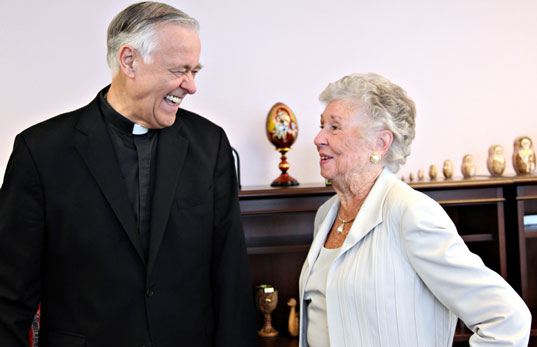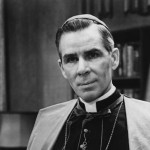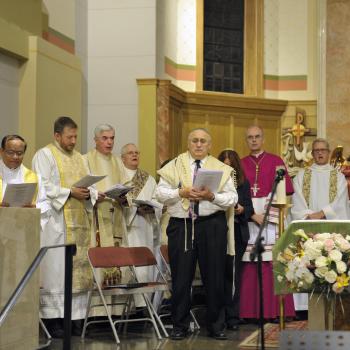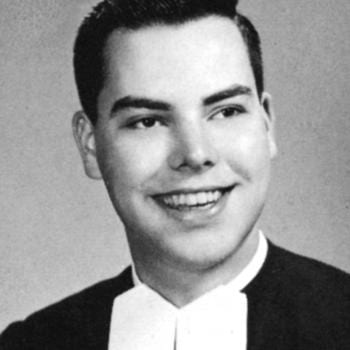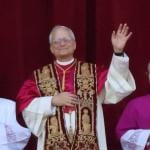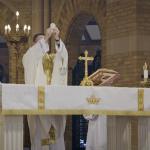You may remember a posting from July, when I mentioned meeting Fulton Sheen’s niece. (She’s pictured above with Sheen’s successor at the Propagation of the Faith — and my current boss— CNEWA president Msgr. John Kozar.)
Now, she’s given an interview and shared some fascinating details about the life of her celebrated uncle.
From the Catholic World Report:
CWR:What was your relationship to Archbishop Fulton Sheen?
Joan Sheen Cunningham: My father, Joseph Sheen (1899-1956), was the younger brother of Fulton Sheen. There were four Sheen brothers; Fulton was the oldest, and my father the second oldest. The two other brothers were Thomas and Al. My father was the closest to Fulton.
I was born into a family of eight in Peoria, Illinois. My father was a lawyer. When I was age 10, he sent me to New York to go to school, under the care of my uncle, Fulton Sheen. He was like a second father to me.
CWR:So, you were close to him?
Cunningham: Oh, yes. He took an interest in everything in my life. He took me to do things on the weekends. Sometimes, he took me ice skating at Rockefeller Center. He’d buy me pastries. Sometimes we’d visit his priest-friends at church rectories.
He’d take me to the store and pick out dresses for me. When I was older, he’d ask, “Who are you dating?” When I got married, he set up my apartment. He bought my furniture. He even went to the supermarket and bought food for my refrigerator.
He baptized my three children and gave them their first Communion. In fact, he gave me my first Communion.
CWR:Since he was a celebrity, did people come up to him frequently on the street?
Cunningham: People would stop him all the time. They’d want to shake his hand. He’d always take an interest in whoever walked up, taking the time to greet them. He always welcomed them, and was never short with anyone. He was just my uncle back then, it didn’t dawn on me until later that he was a celebrity.
Since he was known for his generosity, people would often come up to ask him for money, telling him how they were down on their luck. He’d hand them $20. I’d ask him, “How do you know that they’re not putting you on; that they really need help?”
He’d answer, “I can’t take the chance.”
He had a great love for the poor. When he served as national director for the Society for the Propagation of the Faith (1950-66), he visited the missions in Africa, and was distressed by the poverty he saw. He’d say, “Oh, if you could see the poor souls there.” As much as he loved teaching, I think the highlight of his career was being director of the Society, so he could help those people and the missionaries who served them.
When he was made bishop of Rochester, he would regularly go to the homes of poor people to celebrate Mass. He was criticized because if a school there had low enrollment, he’d want to close it, sell the property, and give the money to the poor. He saw how the poor in Rochester were in need of medical care, so he wanted to supply a medical van, staff it with doctors and nurses, and drive it to parts of town where the poor needed help. He went to a local hospital with the idea, but they wouldn’t help him.
Attitudes were different back then. There was not the stress on helping the poor like there is today. My uncle always worried about the poor.
He was also kind to outcasts. I remember one man that was disfigured by leprosy who always came to his radio broadcasts. People in the audience would see the man, cringe at his appearance and move away from him. My uncle would say to me, “Joan, go over and talk to that man, he’s very nice.”
There’s much more. Check it out.

